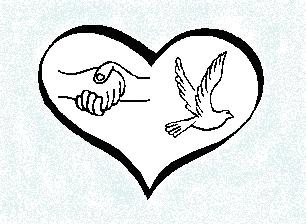|
Character v Peace |
The Biosophical Institute, Inc. |
 |
|
|
Freedom v Friendship |

|
|
|
Frederick Kettner was a pioneer in the education of the deeper nature within man. It was to be his life task to awaken other human beings, as he had awakened himself, to an awareness of their true identity, their kinship with the Divine. Frederick Kettner was born in Czernowitz, Austria in 1886. Early in his youth, he showed excellence in his studies, first undertaking an engineering course, which he left for a period of playwriting in Vienna. He later turned to the study of philosophy and received his Doctorate in philosophy from the University of Vienna in 1919 after writing his thesis on "The Unity of The Five Books in Spinoza's Ethics." He became a teacher, then a professor, and quickly rose to a prominent place in the educational world of his native country, and was offered the Chair of Ethics at the University of Bucharest. During World War I, in which he was a soldier, and while recuperating in an army hospital, Dr. Kettner rediscovered the Bible, becoming an ardent student of the great and majestic ideas contained in this book. He began to think about Jesus' appellation, "The Prince of Peace." If Jesus Christ was the Prince of Peace, he wondered, why have there been over 900 wars in what was supposed to be a Christian society? This led him to question the effectiveness of existing churches in creating a peaceful world. He began to see the need for a new kind of education to develop the Better, or Peace Nature, within people. Thus was developed the science of Biosophy. He derived the word from the two Greek words, bios, meaning life, and sophia, meaning wisdom. Bios satisfied his quest for a word to express "the more abundant life," and sophia was his answer to the question: "Is there something more than the intellect in man?" In 1919, he started the first Ethical Seminar for Character Education. For the rest of his life he would concentrate his attention not only on writing books and lecturing, but on helping young people to arrive at a deeper self-knowledge and self-discovery. Dr. Kettner came to the United States in 1923, accepting an invitation to lecture on Spinoza. Sensing that the opportunities to carry on his biosophical work in America were very great, Dr. Kettner decided to remain in this country, becoming a citizen in 1930. He loved America deeply because he felt that there was a spiritual undercurrent here as testified by the great Americans who created it and added to its culture and greatness - Franklin, Jefferson, Emerson, Lincoln, Walt Whitman and others. Of this country he said, "Americans have created a new country... America has a tremendous Constitution. This Constitution was created by beautiful minds. Democracy means the people rule." Becoming convinced that the future of humanity depended on a few individuals learning to discover, develop and express their spiritual natures, in 1928 he started a school for biosophic education, "The Spinoza Institute of America." The Spinoza Quarterly became its official publication, and was edited by Dr. Kettner. Leading thinkers such as Albert Einstein, John Haynes Holmes, Havelock Ellis, Romain Rolland, Claude Bradgon, Lin Yutang, and William Ernest Hocking wrote for the magazine during the 25 years of its publication. Later on, the Spinoza Institute became the Biosophical Institute and the Spinoza Quarterly became The Biosophical Review. Dr. Kettner always had as his vision and ultimate goal the solution to the problem of world peace. He envisioned the creation of the post of a Secretary of Peace in the cabinet of each government and worked for its realization. He presented his Secretary of Peace Plan at the First Inter-American Peace Conference in Buenos Aires in 1936. He took with him a Secretary of Peace petition which contained the signatures of 41,000 Americans who endorsed the plan. A commission of the conference recommended it for further study at a later conference to be held in Lima, Peru. Dr. Kettner often wondered why the churches were not interested fundamentally in peace. They all talked about peace but continued to stress war-mindedness by making people sinners and not allowing them to develop the "Image of God" in themselves, rather telling them that Jesus would save them. He soon noticed that they not only did not work for this inner development in people but openly opposed it. In 1950, he began a series of lectures in Chicago with the idea of the need for a re-reformation in religion. He was moved to express himself strongly about the incredible blindness of the established orthodoxies. In 1953 he wrote, "An Open Letter to Pope Pius XII" which expressed most lucidly his insights into the travesty which orthodox theology represents. But above all, it served as an opportunity for him to express his deepest convictions about the Godlike within humans, his great love for people's spiritual intelligence, and his deep desire that it should be liberated. For many years, Dr. Kettner worked fervently toward finding a solution to the problem of peace. One of his visions was the establishment of a Peace University in America where individuals would be trained to develop their peace nature, just as there is already instruction for developing people's physical and mental capacities. Dr. Kettner died in 1957, before a Peace University could be established. The above was excerpted from the Biosophical Review, 1958, Vol. 13, N.1 |
|
Webmaster: lacoultah@netzero.netCopyright © 2002
Biosophical Institute
|